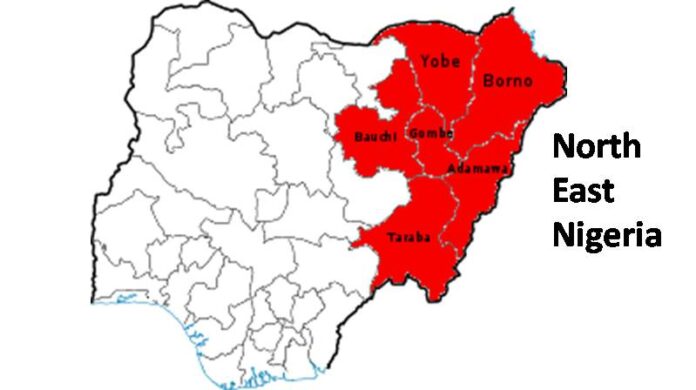North East receives help to fight food insecurity, malnutrition
By Jeph Ajobaju, Chief Copy Editor
Borno, Adamawa, and Yobe have jointly received £15 million from the United Kingdom as donation for vital food and nutrition assistance for the poor and vulnerable in the North East.
The money will help United Nations Children’s Fund (UNICEF) and the World Food Programme (WFP) respond to crisis and emergency levels of food insecurity and malnutrition for vulnerable people, including malnourished women and children.
“As conflict continues, 4.1 million people are facing a food crisis in North-East Nigeria,” acting British High Commissioner to Nigeria Gill Atkinson said.
“Through this emergency funding, the UK has allocated £15 million of humanitarian assistance to tackle food insecurity and malnutrition among the region’s most vulnerable people, including women and children.
“This life-saving aid will help stave off starvation and support people to become more resilient.”
_________________________________________________________________
Related articles:
Nigeria budgets N875b for agric, imports N8tr food
Nigeria suffers N3.5tr post harvest food loss yearly
Nigeria has highest malnutrition rate in Africa, second highest globally
__________________________________________________________________
Rally to scale up intervention
“Millions of people across the Sahel and West Africa are unimaginably suffering with hunger and malnutrition,” British Minister for Africa Vicky Ford added, per Vanguard reporting.
“That’s why the UK will step up with an urgent £38 million of humanitarian funding, reaching those most vulnerable and saving lives across the region.
“The number of people facing starvation is at their worst for a decade. Whilst this UK funding is a necessity, it has to be part of a bigger international effort.
“We are calling on international partners to enhance our collective support and scale-up intervention to halt this humanitarian catastrophe.”
North East close to severe food shortage
The North East is inching close to severe food and nutrition shortage, the United Nations alerted in June, citing 8.4 million residents in Borno, Adamawa, and Yobe as vulnerable after 12 years in the grip of terrorists.
UN Resident and humanitarian coordinator Matthias Schmale told member-states in Geneva of the need for windows of opportunity in the zone, stressing that deteriorating food security and nutrition requires immediate intervention.
“This food insecurity is felt painfully across the region, especially as operations are so desperately in need of funding. In Yobe State, families have not received food assistance for up to eight months.
“Some people are left without food for days not knowing where their next meal will come from,” Schmale disclosed.
He said the March 2022 Cadre Harmonisé – a tool used to identify areas at risk of food insecurity and malnutrition in the Sahel and West Africa – projects that 4.1 million people will be food insecure between June and September.
Almost 600,000 among them are projected to be at emergency levels (Phase 4) characterised by large food consumption gaps reflected in very high acute malnutrition and excess mortality.
This high risk period, the lean season, overlaps with the rainy season, a time when children are left vulnerable from disease outbreaks with weakened resistance if malnourished, Schmale said.





